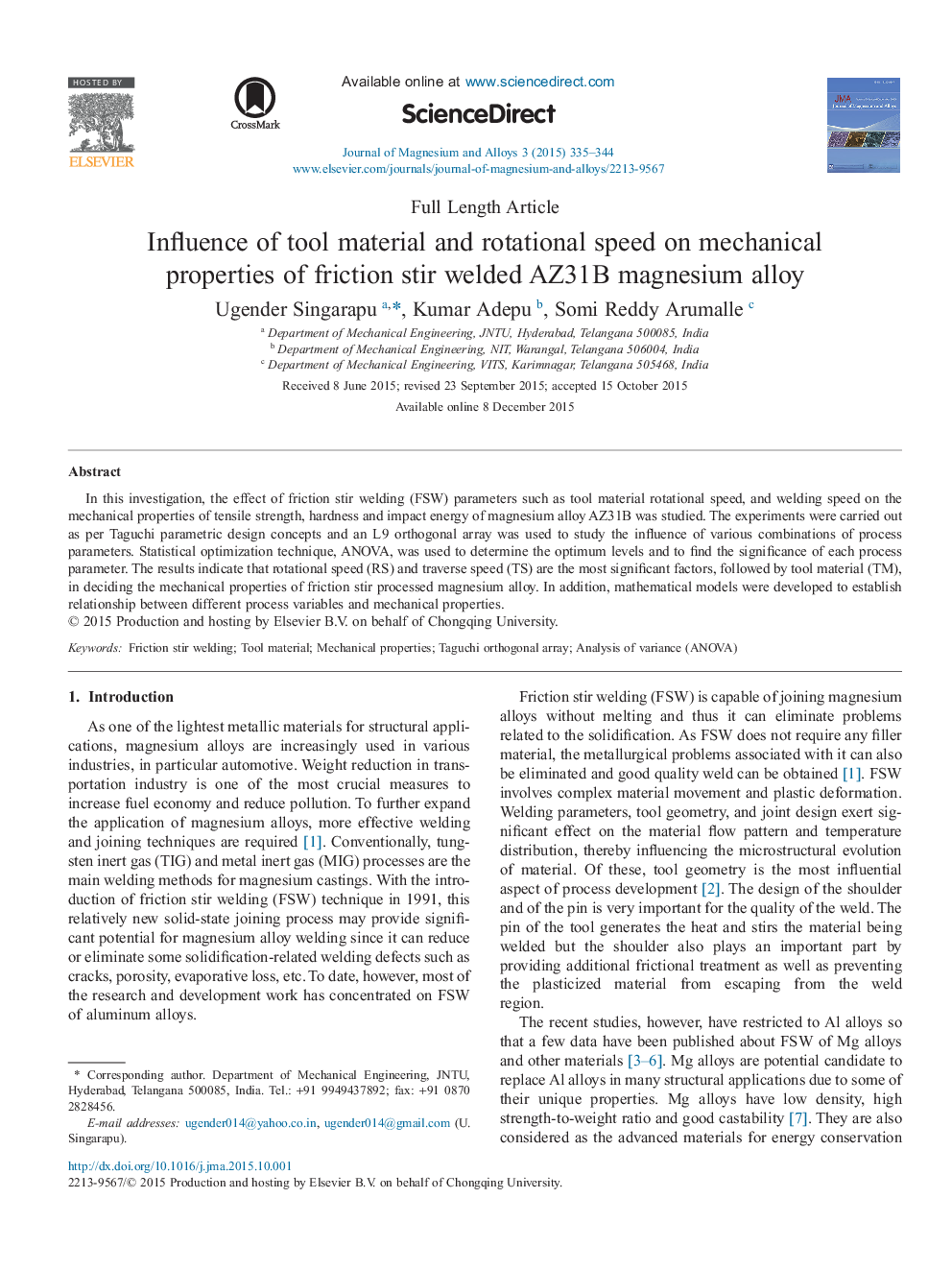| Article ID | Journal | Published Year | Pages | File Type |
|---|---|---|---|---|
| 1630211 | Journal of Magnesium and Alloys | 2015 | 10 Pages |
In this investigation, the effect of friction stir welding (FSW) parameters such as tool material rotational speed, and welding speed on the mechanical properties of tensile strength, hardness and impact energy of magnesium alloy AZ31B was studied. The experiments were carried out as per Taguchi parametric design concepts and an L9 orthogonal array was used to study the influence of various combinations of process parameters. Statistical optimization technique, ANOVA, was used to determine the optimum levels and to find the significance of each process parameter. The results indicate that rotational speed (RS) and traverse speed (TS) are the most significant factors, followed by tool material (TM), in deciding the mechanical properties of friction stir processed magnesium alloy. In addition, mathematical models were developed to establish relationship between different process variables and mechanical properties.
